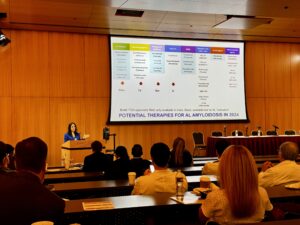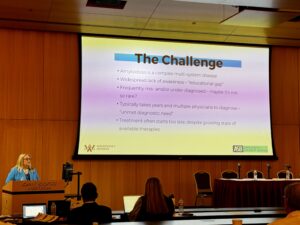We were proud to be part of the 2nd annual Bradley Z. Naifeh Amyloidosis Conference 2024 at Houston Methodist! On day 1 the auditorium was filled with healthcare professionals who learned about the many facets of the clinical side of amyloidosis from experts such as Dr. Ron Witteles of Stanford and Dr. Angela Dispenzieri of Mayo Clinic.

On day 2 the auditorium was packed with patients and caregivers of all types of amyloidosis, offering a wonderful opportunity to learn about the disease, resources available, and network with other patients and caregivers.

Mackenzie and Deb had the chance for a photo op with Megan Fleischfresser Naifeh (daughter of Bradley Z. Naifeh who lost his battle with AL Amyloidosis) and Dr. Arvind Bhimaraj (co-host of the conference).

We thank the Naifeh family for their support of this valuable annual conference.




